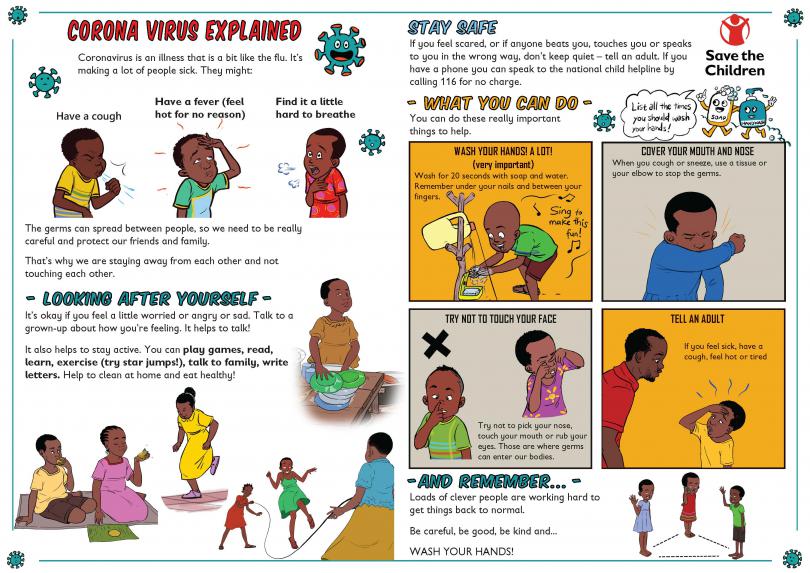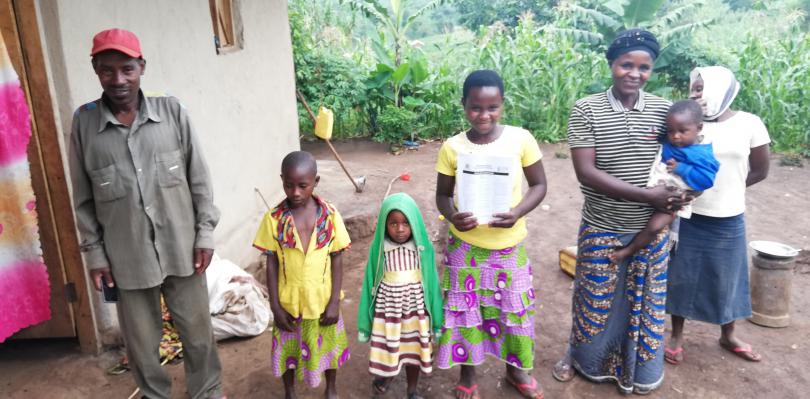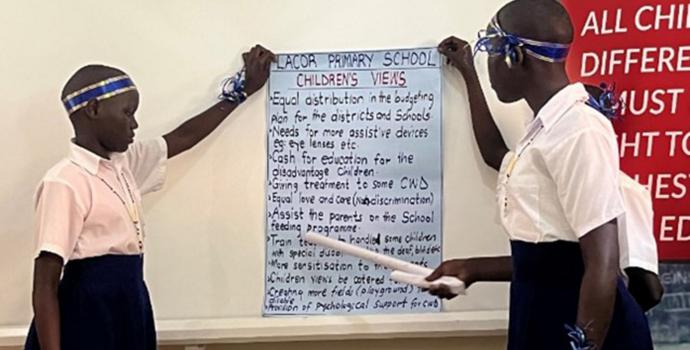Covid-19 home learning kits distributed to more than 100,000 children
Save the Children this week distributed home learning packs for more than 100,000 children across Uganda. The packs will provide children with study materials while schools are closed due to Covid-19, as well as child-friendly information on how to keep safe and healthy during the outbreak.
Uganda has closed all schools as part of measures to try and stop the spread of the virus. More than 15 million children are now out of school, but it is essential that learning continues.
The packs include:
- Self-study materials for every grade of primary school, containing English, science, maths and social studies exercises to do while at home. The materials have been developed and approved by the National Curriculum Development Centre (NCDC) and the Ministry of Education & Sports
- A specially made cartoon comic strip (pictured below) explaining how children can stay safe, stay healthy and protect themselves at this time
- A daily wellbeing diary that children can fill in, to help support their mental health
- A fun daily schedule to help children find a comforting routine while their normal lives are disrupted. Setting a daily routine can help children find a sense of normalcy and reassurance.
- Stationery including pens, pencils and exercise books
Some packs also include a series of illustrated story books (top picture) for children to read, based on traditional Ugandan folk tales in English and local languages. These are produced by Pangea Publishing as part of a project to provide learning materials that are culturally and linguistically relevant to children in Uganda.

Distribution of the packs has been funded by a range of donors including Education Cannot Wait, the Norwegian Agency for Development Cooperation (Norad) and European Union humanitarian funding (ECHO). They will reach children all over the country, including refugee settlements in the north and west and rural communities in the north, central and northeast.
One of the first children to receive a learning pack was 15-year-old Priscille* (pictured below), who lives together with her parents and four younger sisters in Rwamwanja refugee settlement in western Uganda after they fled the war in DR Congo.
She’s in the seventh and final grade of primary school, at an age when many girls drop out of school. She was preparing to sit her Primary Leaving Examination (PLE) this year.
“I have pride as a girl to reach that class,” says Priscille*. “This virus should stop so that I can sit the PLE, since many girls cannot make it! I got second grade to reach this class and this makes me happy and keen to complete my studies!”

Ensuring home learning is essential as the longer that vulnerable children like Priscille* are out of school, the less likely they are to return, as rates of child labour and child marriage rise.
The packs will be supported by other education activities, including learning sessions broadcast over the radio. Save the Children has supported NCDC to record a series of 24 lessons for primary school children which will be played daily on national radio, and has also produced a radio series based on Save the Children’s global “Ready to Learn” approach for pre-school children. The series aims to help children aged 3-6 years learn to read and count while accompanied by their parents and caregivers.
Radio is the most widespread media in Uganda – far more common than TV or internet – but some of the most vulnerable children do not have access. Save the Children will also distribute radios in the most remote locations.
“I will listen to music over the radio to make me happy,” says Priscille*. “I will also look for stations that are conducting lessons, as reading alone is very hard.”
* Name changed to protect identity




